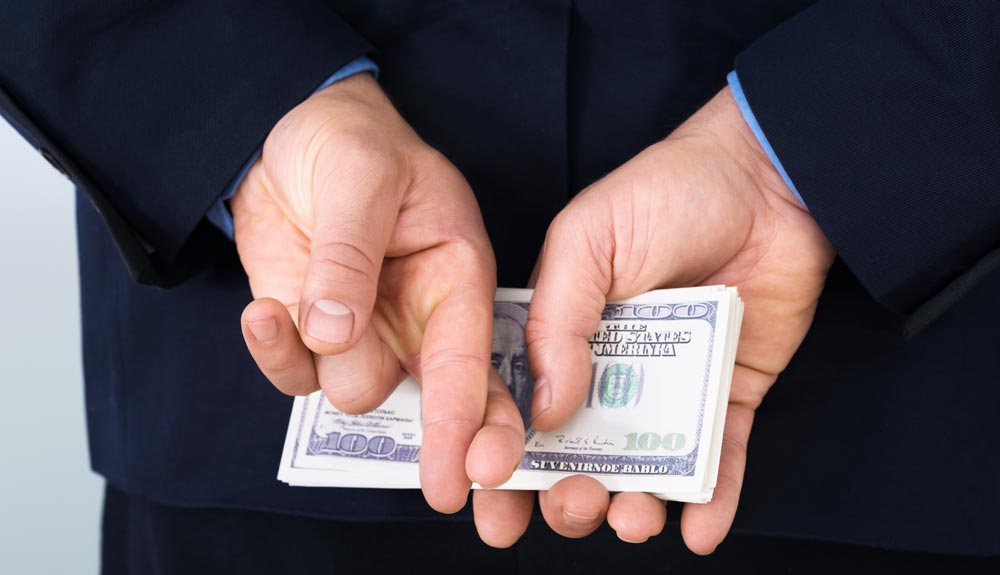The sticky extracurricular activities of an attorney cannot only get that attorney in trouble, but the law firm associated with them as well.
In 2022, former New York attorney Robert Wisnicki resigned from the New York State Bar Association after being investigated for improper use of IOLA accounts. He later admitted to falsely testifying in front of a grand jury in an attempt to hide his part in a money laundering scheme. It also came to light that Wisnicki participated in a nearly $20 million Ponzi scheme in which he held money from clients to invest in real estate, then transferred the funds of other clients to the original real estate investor-clients to disguise losses. Because Wisnicki used one of his firms, Wisnicki & Associates, LLP, to carry out his crimes, the firm was named as a defendant in the case and is now out of business. As for his other firm, Wisnicki Neuhauser LLP, they now operate as Neuhauser Law PLLC to separate themselves from Wisnicki. Wisnicki’s case is currently ongoing with a plea agreement that included a $19 million forfeiture and $18.8 million in restitution as reported by Law.com.
Unfortunately, attorneys’ nuanced knowledge of the law and its “loopholes” can tempt less ethical, otherwise compromised or really any lawyer to cross lines they should not – lines that seemingly lead to big payouts. However, when all goes awry, their firms and colleagues may also pay the price. As such, firm leadership should be acutely aware of attorney fraud risks and how to protect their businesses.
The risks of fraud
Fraudulent activity can mean participating in money laundering, tax evasion, Ponzi schemes and other illegal practices. An attorney’s law firm can suffer financial, legal and reputational repercussions as a result. A lawyer’s professional liability insurance policy excludes matters of dishonest or criminal activity, meaning all costs associated with the crime should come from the attorney-at-fault’s pocket and in cases like Wisnicki’s, the firms they use to push forth their agendas. If the firm or its partners are proven to be involved in or to have had knowledge of the fraud without immediately reporting it, the firm’s insurance could void and the firm and its partners could be exposed to unimaginable liability. Reputationally, even the actions of a lone actor could imply to the public that the entire firm is connected, whether or not others in the firm were implicated in a crime. And with higher profile cases, like Wisnicki’s that drum up media attention, law firm leadership could have a difficult time protecting their brand from negative news stories.
Fraud prevention
What may be most frustrating about of fraud cases and what can make them difficult to identify are the secretive tactics required to carry them out. One of the most notorious non-attorney fraudsters of all-time, Bernie Madoff, committed his crimes over more than two decades and was successful for years due to his under-the-radar approach. To prevent fraud, law firm leaders should consider the following best practices:
- Require checks & balances: A law firm and its attorneys are trusted with complex, sensitive matters that can, in some cases, be easily manipulated based on privileged information, access to funds and other insider knowledge. No matter the case, law firms should have procedural checks and balances in place, such as case reviews, financial reporting audits and signature and approval processes. Law firm leaders should have regular conversations about the cases under their firm’s masthead and discuss any discrepancies that may arise. Leadership should also have regular conversations about procedures that might strengthen their checks and balances.
- Nurture an ethical culture: While ethical compromise can expose firms to perhaps their greatest risk, a law firm’s employees can also be their greatest line of defense. Law firm leaders should work to create a culture where people respect the value of ethics and feel comfortable coming forward with matters that might require investigation. No matter is inconsequential if reporting it could reveal room for improvement. Everyone in a law firm should be trained in what to look for such as financial discrepancies or red flag conversations. Reporting processes should be clear to all firm employees.
- Report properly: If a discrepancy is found whether via an employee report or internal review, law firms should have processes for reporting to ensure compliance and risk mitigation. Some cases may require police attention or the involvement of a state bar authority. It is important to know how to report issues and to whom to report them. During this process, law firms should review and discuss their insurance policies with an insurance professional who specializes in insurance for legal professionals. A savvy insurance specialist can help make sure leadership is aware of the steps they must take to ensure they do not implicate themselves in a crime or void their professional liability insurance coverage.
At times, particularly in cases rich in media attention, allegations of attorney fraud can seem like a made-for-TV event. The reality is law firm leaders who do not consider the real potential for fraud are putting their firms in a vulnerable position and could become their own cautionary tale. Unfortunately, even the most seasoned lawyers can engage in questionable behaviors. Protect your team as you do your clients – take a moment to consider how your team can strengthen its defenses against attorney fraud.



